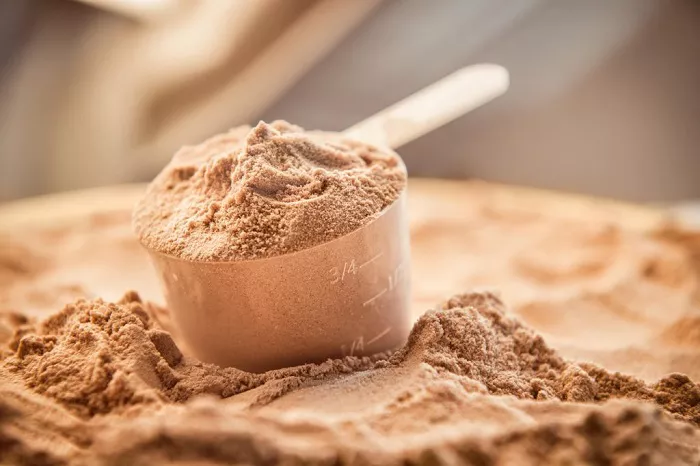Protein is an essential nutrient that plays a critical role in the functioning of the human body. It is involved in a wide range of biological processes, including muscle growth, tissue repair, and immune function. In recent years, there has been a growing interest in the role of protein in weight loss and fat burning. In this article, we will explore the science behind protein burn fat and its potential effects on metabolism.
Protein and Metabolism
Metabolism refers to the chemical processes that occur within the body to maintain life. It includes processes such as digestion, absorption, and energy production. One of the key factors that influence metabolism is the amount and type of food that we eat.
Protein is known to have a higher thermic effect than other macronutrients, meaning that it requires more energy to digest and absorb. This means that consuming protein can increase the number of calories that the body burns during digestion, potentially leading to increased fat burning.
Additionally, protein is known to help preserve lean muscle mass, which is important for maintaining a healthy metabolism. Muscle tissue burns more calories at rest than fat tissue, so preserving muscle mass can help increase overall calorie burn and make it easier to maintain a healthy weight.
Protein and Satiety
Another way that protein may contribute to weight loss and fat burning is through its effects on satiety, or feelings of fullness. Protein is known to be more satiating than other macronutrients, meaning that it can help reduce hunger and prevent overeating.
This can be particularly beneficial for weight loss, as consuming fewer calories than the body burns is essential for losing fat. By increasing feelings of fullness and reducing the likelihood of overeating, protein may help individuals consume fewer calories overall, leading to increased fat burning.
Protein and Muscle Building
As mentioned earlier, protein is important for building and maintaining lean muscle mass. This is particularly important for individuals who are trying to lose weight, as losing weight can often result in the loss of muscle mass as well as fat.
By consuming adequate amounts of protein, individuals can help preserve their muscle mass and potentially even build new muscle tissue. This can help increase overall calorie burn and make it easier to maintain a healthy weight.
Protein and Exercise
In addition to its effects on metabolism and satiety, protein may also play a role in exercise performance and recovery. Protein is essential for tissue repair and muscle growth, making it an important nutrient for individuals who engage in regular exercise.
Consuming protein after exercise can help promote muscle recovery and growth, potentially leading to increased muscle mass and improved exercise performance. Additionally, consuming protein before exercise may help improve endurance and reduce muscle damage.
Protein and Weight Loss
While protein alone is not a magic bullet for weight loss, it can be a helpful tool for individuals who are trying to lose weight and burn fat. By increasing feelings of fullness, preserving lean muscle mass, and potentially increasing calorie burn during digestion, protein can help support weight loss efforts.
However, it’s important to note that weight loss ultimately comes down to consuming fewer calories than the body burns. While protein can be a helpful tool for reducing calorie intake and increasing calorie burn, it should be consumed as part of a balanced and calorie-controlled diet.
Protein Sources
When it comes to consuming protein, it’s important to choose high-quality sources. Animal-based sources of protein, such as meat, poultry, and dairy, are typically considered to be high-quality sources of protein.
However, there are also many plant-based sources of protein, such as beans, lentils, and tofu. These sources of protein can be particularly beneficial for individuals who follow a vegetarian or vegan diet.
Protein and Weight Maintenance
Finally, it’s important to note that consuming adequate amounts of protein is not only important for weight loss but also for weight maintenance. By preserving lean muscle mass and increasing overall calorie burn, protein can help individuals maintain a healthy weight over the long term.
Additionally, consuming protein can help prevent weight regain after weight loss, as it can help reduce feelings of hunger and prevent overeating.
Conclusion
Protein is an essential nutrient that plays a critical role in the functioning of the human body. While it is not a magic bullet for weight loss and fat burning, consuming adequate amounts of protein can be a helpful tool for individuals who are trying to lose weight and maintain a healthy weight over the long term.
By increasing feelings of fullness, preserving lean muscle mass, and potentially increasing calorie burn during digestion, protein can help support weight loss efforts. Additionally, consuming protein after exercise can help promote muscle recovery and growth, potentially leading to increased muscle mass and improved exercise performance.
When consuming protein, it’s important to choose high-quality sources and to consume it as part of a balanced and calorie-controlled diet. By incorporating protein into a healthy lifestyle, individuals can support their weight loss and fat burning efforts and maintain a healthy weight over the long term.
[inline_related_posts title=”You Might Be Interested In” title_align=”left” style=”list” number=”6″ align=”none” ids=”4209,3882,3880″ by=”categories” orderby=”rand” order=”DESC” hide_thumb=”no” thumb_right=”no” views=”no” date=”yes” grid_columns=”2″ post_type=”” tax=””]\































